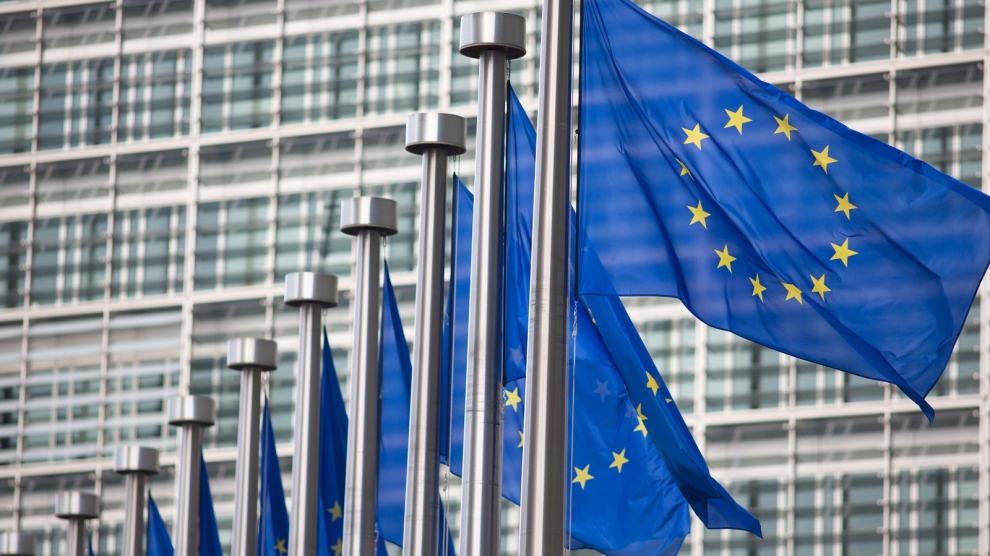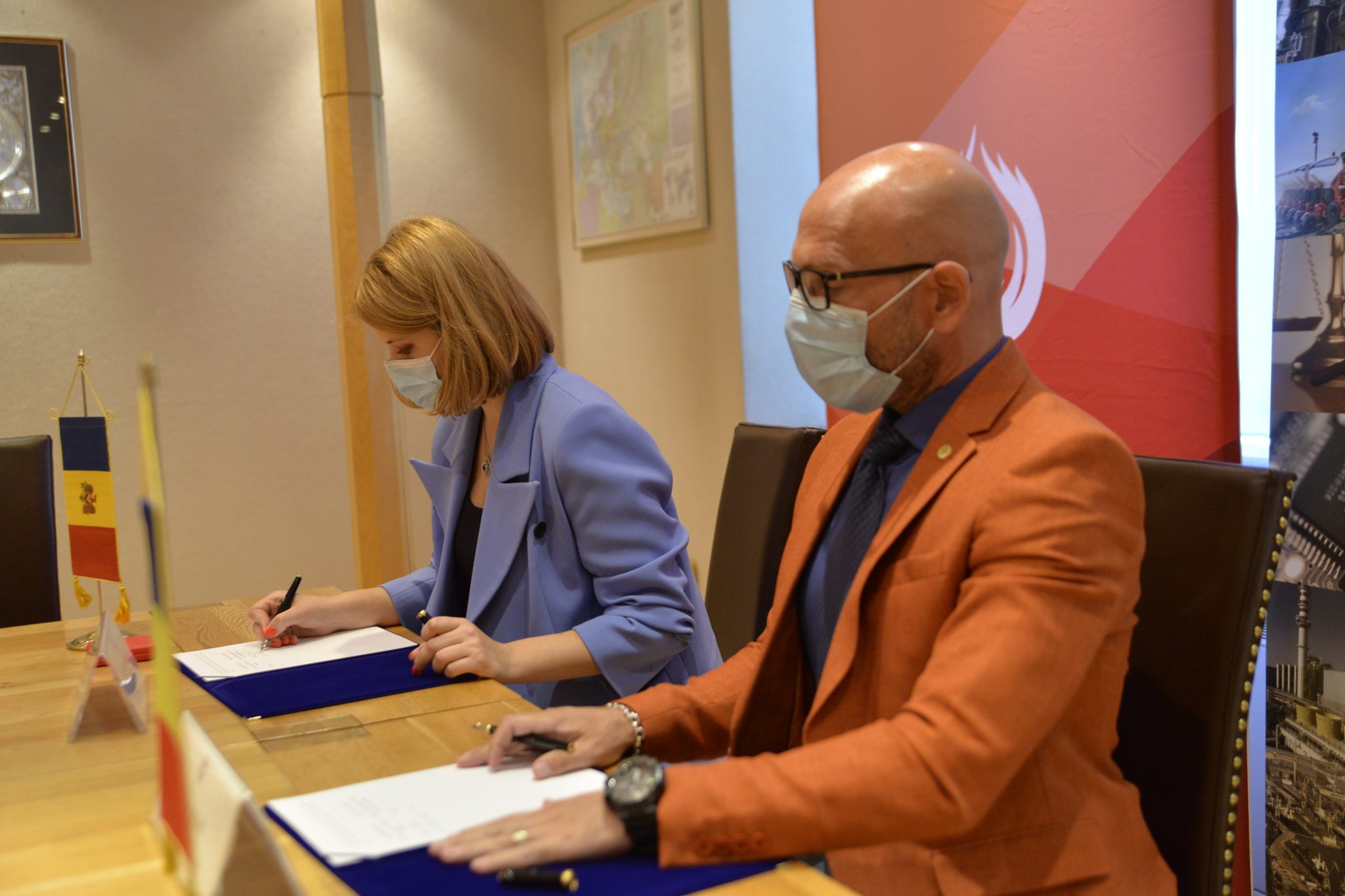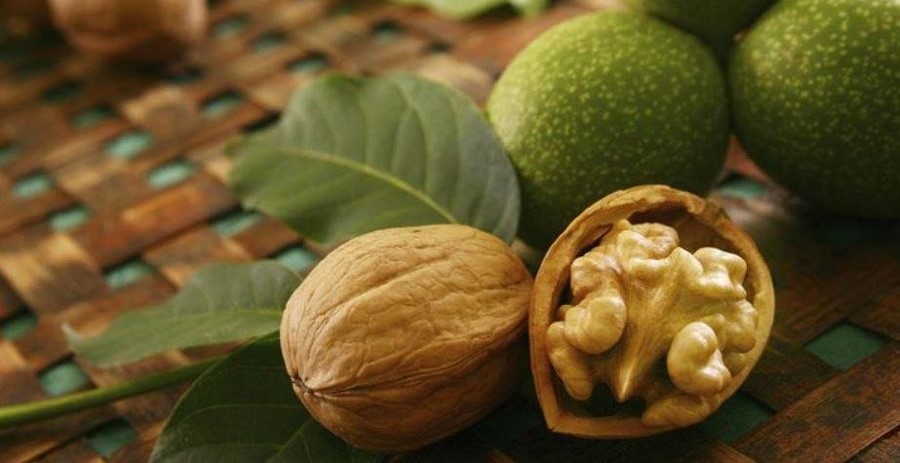Economy
Analysis: Moldovan wine exports to Russian market are still stopped
Reading Time: 4 minutesA year after introduction of embargo, Moldovan wine exports to Russian market are still stopped (Commentary by Andrei Cibotaru, BASA-press
Author: Andrei Cibotaru, BASA-Press
Government and business languages were marked starting last year by a relatively new word: embargo. On 27 March 2007 there is exactly a year since the Russian Federation blocked imports of Moldovan wines.
This measure had a very serious impact on Moldovan economy, given that one third of Gross Domestic Product was ensured by the viticulture and winemaking sector. The economic growth slowed down, industry and exports are operated with losses for the first time in more than six years.
The macroeconomic situation of the country continues to worsen. Every month, earlier pompous indicators, now are diluted. If all over 2006, wine production reduced twice, then in the first two months of this year, wine produce dropped five times. According to some optimistic data, wine factories are using now one third of their capacities. The pessimistic data point to a poorer situation: every enterprise is using only one tenth of its potential.
"It’s a real tragedy to see how the company doesn’t work for a period of time, and the employees are forced to take vacations", says Constantin Olaru, Director of Vismos Factory, one of the biggest in the Republic of Moldova. The equipment of the company degrades daily because of not being used in production.
Experienced vintners were forced to leave abroad, to Ukraine, the USA, or even Russia, while others opted for business in other spheres.
Until today, the Government made no exhaustive report on the impact of stopping wine exports to Russia. Or at least did not make public such a report.
According to the data provided by the Union of Oenologists of Moldova, the Moldovan wine production stored in Russia before the embargo is estimated to be worth US$180 million. Winemakers admit that they will never probably see this money.
In exchange, they are forced to reimburse the bank loans they contracted, and which are estimated to 2 billion lei (US$160 million). "There were times when the banks were courting us. Financial groups were fighting for us. But now the situation changed", says Nely Sonic, Director of Lion Gri Company. Financial institutions are intolerant. "When the embargo was imposed, we were asked not to make pessimistic statements in order to avoid creating panic on the currency market. The bankers came off clear then. But they have forgotten about the favor we made them", says Nely Sonic. The forced execution titles by courts for not reimbursing loans in time started to appear. The banks are forcefully selling the goods pledged by wine companies.
Besides the banks, wine companies have debts in the amount of 350 million lei for the procured grapes in the fall of 2006 and other more than 200 million lei to the companies operating in the associated industries (glass, cardboard, printing houses).
The losses of the state budget as a result of the Russian embargo on wines amounts to 40-50 million lei monthly.
Every enterprise tries to get out of the crisis situation as it can. One can buy in Chisinau a bottle of Cabernet 10-15 years old (bottled hurriedly in 2006) for up to US$10. Factories started to sell at a very low price their vintage wine reserves, and this is an expressive argument for the current condition of vinification industry.
Domestic market, although with a great potential, was lost for industrial wines. "Moldovans consume annually more than 45 million bottles of vodka and only 3.5 million bottles of wine. The domestic market was lost although nobody imposed any embargo", stated Nicolae Taran, Deputy Director of Vine and Wine Institute.
"The only breath of air that remained is the possibility to export bulk wine, this was closed too", says Gheorghe Cozub, Chairman of the Union of Wine Producers and Exporters. From 1 January 2007, Chisinau prohibited supplies of raw material wine in order evaluate the reserves and institute a more severe quality control. What is most alarming is that exports were stopped based on a simple letter issued by Moldova-Vin Agency, which raises many questions regarding the legality of this measure.
In reply, Belarus, the third market for Moldovan wines, stopped imports of bottled wines. All winemakers are expecting regulations by Moldova-Vin that would allow resumption of exports.
 Earlier, wine exports accounted for 30% of external supplies of Moldovan goods. In 2006, Moldova exported wines and other spirits worth US$173 million, 45% less than in 2005.
Earlier, wine exports accounted for 30% of external supplies of Moldovan goods. In 2006, Moldova exported wines and other spirits worth US$173 million, 45% less than in 2005.
If in 2005 supplies on the Russian market amounted to US$250 million, then last year, in January-March, before the embargo was imposed, exports to Russia amounted to US$45 million.
"Russian restrictions represented the worst news of the year for vintners, and the reorientation to other markets failed to remedy the handicap", says Iurie Mudrea, Spokesman of Moldova-Vin.
If we are to exclude the influence of the Russian market, then exports increased on a range of destinations. In Romania supplies increased by 17 times, exports to Ukraine doubled, while supplies to Poland advanced by 25%. Following the embargo, Chisinau intensified measures of promotion on other markets.
Experts point out more and more often that untraditional markets would be a solution for Moldova. Countries such as China, India, Japan, or Sweden may be "exotic markets" for Moldovan wines.
"Export to China made its first step from zero to US$300 thousand in 2006. We are starting to reach common ground with the Chinese", says Iurie Mudrea. Fourteen companies have already entered on the Chinese market. On 23-25 March 2007, in Shanghai (a city in the eastern part of China) a Festival of Moldovan Culture and Vinification took place.
On 18-20 April 2007, a presentation of Moldovan wines will be organized in Stockholm, capital of Sweden.
Moldova will also try to penetrate on the Italian spirits market, where a Moldovan Community of more than 200 thousand Moldovans lives. "It is a population of a whole city and we believe that it is a good niche for our winemakers", Mudrea estimated. According to him, Moldovans living in Italy would prefer wines, in particular, Moldovan cognacs and strong drinks.
"It is odd that we are talking so much only about Russia. The latter with a population of 170 million inhabitants can be compared to Japan, for instance, with a population of 140 million inhabitants. However, if the former traditionally consumes vodka, then highly industrialized countries tend to increase wine consumption", says Feodosii Bors, owner of Doina-Vin company.
Anyway, most winemakers admit that the Russian market was and will be a key market for them. Nevertheless, they have already been warned: export conditions will be even tougher than in the European Union.
"Every lot will be checked in terms of all parameters, and be subject to about 42 tests", said Andrei Gurin, Head of State Inspectorate for Spirits Supervision, after the meeting with Rospotrebnadzor experts. // BASA-Press
Economy
Moldova will receive a disbursement of 36 million euros as part of the the Economic Recovery Plan

This week, the European Commission approved the disbursement of 36 million euros in grant money for the Republic of Moldova. The announcement was made by Deputy Director-General for Neighbourhood Policy and Enlargement Negotiations at the European Commission, Katarina Mathernova, who paid an official visit to the Republic of Moldova between September 13-15, together with Managing Director for Russia, Eastern Partnership, Central Asia, Regional cooperation and OSCE, at the European External Action Service, Michael Siebert.
The EU officials had meetings with President Maia Sandu, Minister of Foreign Affairs and European Integration, Nicu Popescu, Speaker of Parliament, Igor Grosu, Prime Minister of the country, Natalia Gavrilita, as well as key representatives of Government, international financial institutions and the civil society, according to a press release issued by the Delegation of the European Union to the Republic of Moldova.
Beside such topics as the EU-Moldova relations and prospects, the priorities of the reform agenda of the new Moldovan Government, preparations for the Eastern Partnership Summit at the end of the year and the Transnistrian conflict settlement, the officials also discussed the EU assistance in support of reforms and the Economic Recovery Plan for Moldova, which was announced in June with a total EU support of 600 million euros over the next 3 years.
“The first measures under the Economic Recovery Plan will shortly materialize, with the expected disbursement of 36 million euros in grant money under budget support programmes to support the authorities’ efforts to fight against the consequences of the pandemic. Moldova can count on EU’s assistance on its path to reforms and to recovery, bringing tangible results to citizens,” Katarina Mathernova stated.
The plan is based on assistance provided by the European Union through various bilateral and regional instruments, aiming to mobilize the funds in the form of grants, loans, guarantees and macro-financial assistance.
“The Economic Recovery Plan for the Republic of Moldova involves much more, not just this financial support provided immediately. It must help digital transformation, strengthen infrastructure, energy efficiency, education and support small and medium-sized enterprises,” the EU official also said.
As Prime Minister Natalia Gavrilita informed, “The Economic Recovery Plan and the 5 flagship initiatives for Moldova in the Eastern Partnership will directly contribute to the reform and consolidation of institutions, stimulate long-term socio-economic development, bring direct benefits to citizens, and unleash new economic opportunities through promoting the green agenda and digitization. Small and medium-sized enterprises (SMEs) have been hit hard by the crisis. Promoting and diversifying access to finance and reducing collateral requirements will be essential in supporting economic operators. We are grateful to the EU partners who will launch two programs to support 50 000 independent Moldovan SMEs to adapt to the new conditions.”
President of the Republic of Moldova, Maia Sandu, welcomed the decision of the European Union to disburse about 745 million lei in grant money, as the official page of the President’s Office announced. “EU support comes after a long period of freezing of European assistance, caused by former governments. We managed to relaunch the political dialogue with the European Union and resume financial assistance. The Republic of Moldova is gradually regaining the trust of its strategic partners. This European support is also a signal of encouragement for the new Government team in its commitment to clean up the institutions, fight corruption and launch development programs in the country,” said Maia Sandu.
Photo: unknown
Economy
Romania and Moldova signed a partnership memorandum pledging to cooperate in promoting their wines

The Chamber of Commerce and Industry of Romania (CCIR) and the National Office for Vine and Wine (NOVW) of the Republic of Moldova signed, last week, a memorandum of cooperation on organizing joint promotional activities in the markets of common interest, as the CCIR announced.
China, Japan or the USA are just some of the markets targeted by the Romanian and Moldovan institutions. The memorandum also involves advertising activities for wines from common indigenous varieties, promoting the oeno-tourist region, developing a tourist route in the two states, exchange of experience, study visits, and mutual support in identifying new export opportunities. “We are very confident that this collaboration between our organizations will lead to sustainable economic growth and a higher degree of well-being among Moldovans and Romanians,” claimed Deputy Secretary-General of CCIR, Bogdan Visan.
On the other hand, Director of the NOVW, Cristina Frolov, declared that no open competition with Romania is aimed at the governmental level of the Republic of Moldova. “This request for collaboration is a consequence of the partnership principle. Romania imports 10-12% of the wine it consumes, and we want to take more from this import quota. Every year, the Romanian market grows by approximately 2.8%, as it happened in 2020, and we are interested in taking a maximum share of this percentage of imported wines without entering into direct competition with the Romanian producer,” the Moldovan official said. She also mentioned that Moldova aims at increasing the market share of wine production by at least 50% compared to 2020, and the number of producers present on the Romanian market – by at least 40%.

Source: ccir.ro
**
According to the data of the Romanian National Trade Register Office, the total value of Romania-Moldova trade was 1.7 billion euros at the end of last year and over 805 million euros at the end of May 2021. In July 2021, there were 6 522 companies from the Republic of Moldova in Romania, with a total capital value of 45.9 million euros.
The data of Moldova’s National Office of Vine and Wine showed that, in the first 7 months of 2021, the total quantity of bottled wine was about 27 million litres (registering an increase of 10% as compared to the same period last year), with a value of more than one billion lei, which is 32% more than the same period last year. Moldovan wines were awarded 956 medals at 32 international competitions in 2020.
Photo: ccir.ro
Economy
Moldova’s hope to be a top walnut exporter and its main difficulties

The Republic of Moldova has perfect weather conditions for growing walnut trees, that creating a great potential of walnut production and trade, especially on international markets, where the demand is way higher than the product’s supply. National and international experts believe that the country’s walnut production industry is on the verge of important transformations, which could lead to increased yields, quality and competitiveness worldwide.
According to authorities, Moldova exports 34-35 thousand tons of walnuts in shell, which is about 7% of the total export of fruit and 5% of the total export of horticultural products. The export value is assessed as being $120 million, that being 57-60% of the total fruit export value and about 50% of horticultural export value. Most of walnut crops are exported to the EU countries, such as France, Germany, the Netherlands, Romania and Austria. The country’s exports were among the world’s top 10 when it comes to the highest dollar value of the product during 2020.
Viorel Gherciu, Minister of Agriculture and Food Industry, pointed out that the production in the domestic walnut industry has increased by 55% in the last five years, which ranks Moldova among the main producers in the world.
“The biggest opportunity for this industry is that we are in the geographical proximity of the largest walnut import area in the world, which is the European Union, with almost 40% of total imports in the world. We are on the EU border, with privileged relations, with an Association Agreement. We already enjoy a good relationship in working with European importers, they trust our processors. A very close collaboration has been created and this is, in fact, the guarantee for those who invest in the area,” claimed the president of the Walnut Producers Association, Oleg Tirsina.
The data provided by the National Bureau of Statistics show that there are 34.7 thousand hectares of walnut plantations in the country. 20.90 hectares are represented by orchards. 75% of planted orchards are formed of old varieties trees. 30-35% of the exported production comes from orchards, the rest comes from individual farmers and plantations along the roads. This means that the quality of walnut production is not at its maximum potential. Developing commercial plantations through orchards modernization and extension of walnut varieties would provide double yield and better quality, experts say.
Governmental support in the form of subsidizing solutions, foreign investments and credit options are indispensable for the industry development. One of the financing options is the credit line of the European Investment Bank Project. Since 2016, 15 producers and processors of nuts, almonds and hazelnuts have benefited from these loans with the total amount of investments worth 8.7 million euros. A further extension of the project would provide another 60 million euros for the modernization of the horticultural sector in general and for harvesting organic walnuts in particular.
Photo: heymoldova.com





















